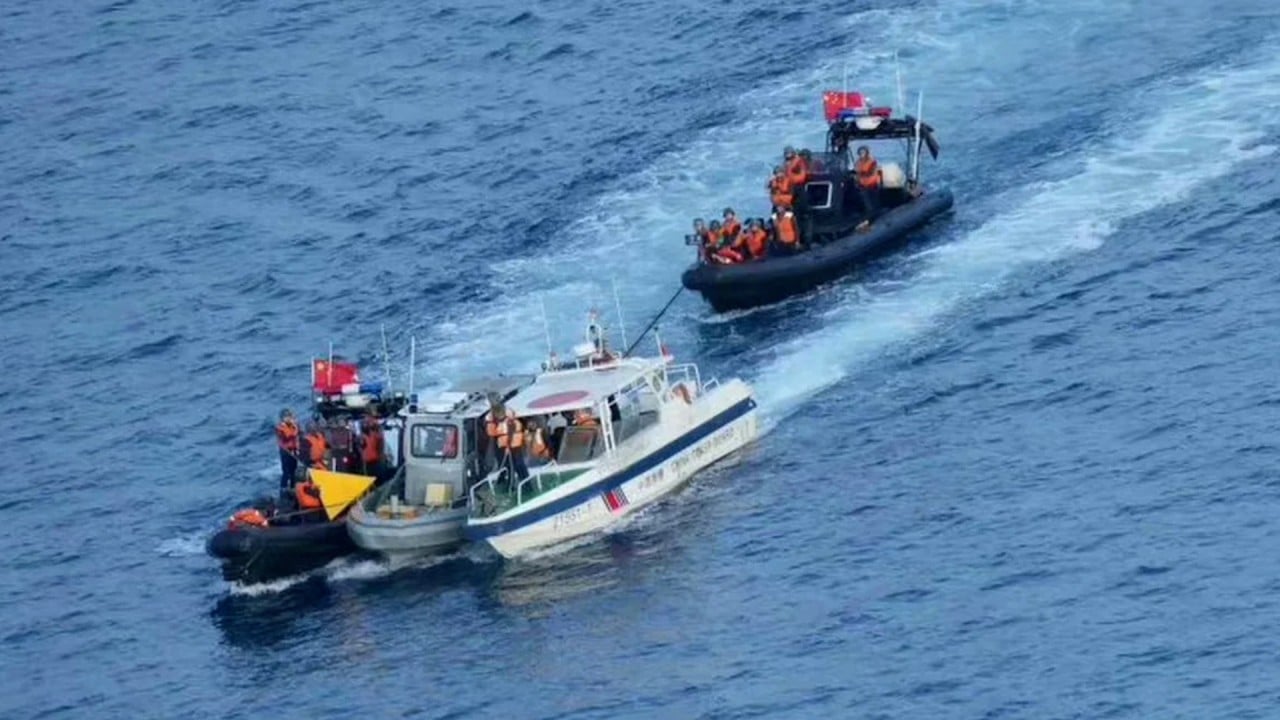Without naming China in his speech, Marcos said the Philippines would continue to “find ways to de-escalate tensions in contested areas … without compromising our position and our principles”.
His remarks came after the Philippines and China agreed to a “provisional arrangement” for resupply missions to Filipino troops stationed at Second Thomas Shoal, which has been the focus of violent clashes in recent months.
Beijing claims almost the entire South China Sea and asserts its stance by deploying coastguard and other vessels to patrol the disputed waters and reefs.
The Philippines has also deepened defence cooperation with other countries, including Australia, France and Japan, in the face of China’s growing assertiveness in the waterway.
Manila signed a key defence pact with Tokyo this month that will allow the deployment of troops on each other’s territory.
“We are continuing to strengthen our defensive posture both through developing self-reliance and through partnerships with like-minded states,” said Marcos, who received a standing ovation when he declared “the West Philippine Sea … is ours”.
Manila calls the South China Sea waters to the country’s immediate west the West Philippine Sea.
On Monday, Marcos Jnr also banned gambling operations set up in the Philippines that target gamblers overseas, including Chinese mainlanders, because of crimes linked to the industry.
“Effective today, all Pogos are banned,” he said.
Marcos ordered the gaming regulator to wind down and cease such offshore gaming operations by the end of the year.
“We hear the loud cry of the people against Pogos,” he said, drawing cheers among lawmakers. “The grave abuse and disrespect to our system of our laws must stop.”

The firms had ventured into illegal activities such as financial scamming, money laundering, prostitution, human trafficking, kidnapping, torture and even murder, the president said.
Philippine offshore gambling operators, or Pogos, emerged in 2016, with companies setting up shop in the Southeast Asian nation and targeting overseas markets, including China where gambling is banned.
Senators and business groups have asked Marcos to ban Pogos, which flourished during the term of President Rodrigo Duterte.
The chief of the gaming regulator did not immediately respond to a request for comment.
The Pogos industry employed around 25,000 Filipinos and nearly 23,000 foreigners as of end-2023, government data show.
Reporting by Agence France-Presse, Reuters, Bloomberg


